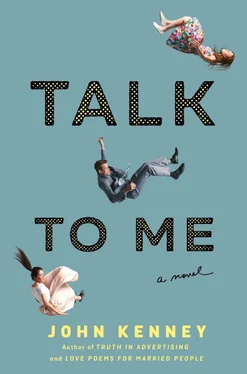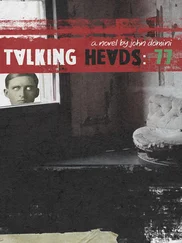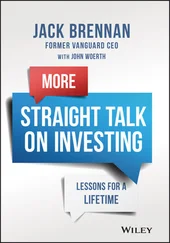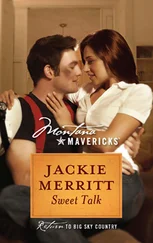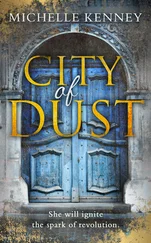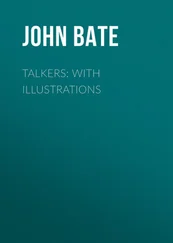He’d looked it up online. He’d found a video on YouTube that showed the proper pronunciation.
“Is that… przepraszam. I hope that’s right.”
It was right. It was pretty good, in fact. Natalia hadn’t been prepared for this and something about the past few weeks, the fatigue, the hope that maybe it could all be over, made her laugh.
“What?” Ted said, embarrassed. “Was it that bad?”
“No,” she said. “It was good.”
Ted smiled.
“Are you close with your father?”
She seemed surprised. “Yes, of course. Why?”
“Call him. I bet he worries about you.”
• • •
The tip came in to scheisse at 4:43. And with it a dozen iPhone photos and a twenty-four-second video of Ted and Natalia standing on a sidewalk. It showed her looking sad. Or at least not happy. It showed Ted talking and then handing her an envelope. It was far enough away that you couldn’t hear what was being said. Not a word. It just looked like Ted was lecturing her. And bribing her. They posted it immediately.
• • •
He met Polly for lunch at a coffee shop on the East Side. It was still cold for late April, a raw day. A tuna sandwich sat in front of him. Lightly toasted white bread, tuna, iceberg lettuce, a dill spear, a small pile of ruffled potato chips. What a perfect plate. How many plates like this had sat before him? The meal of children after school. The meal of the elderly. So simple, nutritious, honest. Could a sandwich be honest? In his current state, Ted felt it could. He also felt like he might cry. And that thought made him laugh, which he did now.
“Ted, you’re freaking me out a little here,” Polly said. “You know that sandwich or something?”
He stared at Polly, smiling at her. Then did something he had never done before. He leaned forward and kissed her on the forehead.
“Ted, I’m eating here,” she said, a lump of egg salad at the corner of her mouth.
He told her about the plan.
He’d come across a story online about passage, for very little money, on container ships. The accommodations were spartan and the food wasn’t particularly good but it was quiet at sea. He would leave New York for Mumbai. He figured he’d make his way around India, the Bay of Bengal, Myanmar, Thailand, Cambodia, Vietnam. It didn’t really matter where to him. He would travel by bus, perhaps make his way to Bhutan and their Gross National Happiness.
“So?” Ted asked her. “What do you think?”
“What do I think? I think it sounds disgusting. I think there will be bugs. I think you’ve lost your freaking mind. Do you want pie? I’m going to have some pie.”
They had pie. Ted listened to Polly talk about her house in the Berkshires. Her garden. How maybe it was time to sell the apartment and go there. She had friends in the area. They had dinner parties.
“New York is over,” she said. “Our New York. It’s gone.”
• • •
They were standing on Madison in the Seventies.
Polly said, “You going to be able to navigate in a foreign city without producers and handlers and no corporate credit card?”
“It’s unlikely. So this could be the last time you see me alive.”
Ted grinned. Polly started to smile but her expression changed quickly.
She had always stood by him, always a friend, this squat, badly coiffed woman who lived alone with a cat.
She reached up and held his face with both hands. “You’re a good boy. Be happy.”
She blinked back tears. He gave her a squeeze and she held on for a time. They parted and Polly started walking north. Ted watched her.
He shouted, “Call me if the Today show is looking for a woman-hating anchor.”
She half turned, one arm in the air, and shouted back. “You’ll be my first call.”
• • •
He’d been asked by every network and cable station to do an interview. He declined all of them. Just a few days ago, a producer from CNN had emailed saying that Anderson Cooper 360° was doing a show on the state of social media. They were bringing in a number of writers and thinkers on the subject, including Henke Tessmer. Would Ted want to appear on a segment of the program? He had not responded.
He emailed her now. He said that both he and his daughter would be happy to appear. He urged the producer to email Frances.
• • •
Franny stared at it for a moment. The idea of telling it, admitting to it, of being forgiven. She said she’d be there.
We’re live with Ted and Frances Grayson.
“We’re live in ninety seconds.”
Ted settled into the chair at the desk and the PA began to put the lavalier mic on him but Ted smiled and took it, put it on himself. He could do it with eyes closed. Raise his seat, sit on his jacket, blow down lightly on the mic, turn to the sound engineer seated off to the set’s side, a guy who can’t help smiling and giving Ted a thumbs-up.
It’s a cocaine rush, the moments before live TV. You can’t know it unless you’ve done it, unless you’ve sat in that chair, ready to stare down that big lens and all it represents, all that’s out there.
A PA walked Franny to set—they’d kept them in separate green rooms—and Ted could tell she wasn’t ready for this. She had on a demure dress, navy blue, just below her knee. The PA mic’d her and sat her on the other side of Cooper, who walked to set and took his seat.
“Thirty seconds. Clear the set, please.”
Cooper sat between them and turned to Ted, extended his hand.
“Ted.”
A hair and makeup woman appeared and did a light touch-up on Cooper, though God knows he didn’t need it. She turned to Ted and lightly touched his hair, smoothing it over with her hands. The woman looked at Ted and it unnerved him.
“Thank you,” he said.
Anderson Cooper turned to Franny, reached over, and touched her hand. “It’s going to be okay. There are no surprises here. I don’t do gotcha. We’ll talk. Just… talk to me.”
Franny nodded.
Cooper looked at notes, though Ted sensed he was composing himself. Anchor’s prayer. Calm the breathing. Clear the throat. Energy up.
In five, Anderson… four… three…
• • •
“This is 360 , I’m Anderson Cooper. We open tonight with the state of the media, social media. Of truth, lies, and videotape. We’ll talk with some of the leading figures in media today, including the head of Google’s ethics commission, Sloan Kent; Facebook’s social policy leader, Ann-Marie Olivery; and Henke Tessmer, CEO of the website scheisse . But first up, Frances Grayson, formerly a senior correspondent for sensationalist website scheisse.com. And her father, Ted Grayson, the longtime anchor and managing editor of the evening news, recently resigned. We’ll take comments and tweets right after this.”
• • •
Anderson was talking, giving the context of the story, the video showing Ted calling Natalia a “whore.” But Ted’s remarkable memory was playing back the little book. The feeling was odd. He no longer heard Anderson Cooper’s voice. He saw his mouth move but heard nothing but his own breathing. He turned to Franny and heard his own voice. Heard himself reading the story. Harold and the Purple Crayon .
“So Frances,” Cooper began, “I said no surprises, but I have to ask, did you lie?”
Except time stops and Franny is four and they lie on the floor of the studio. It’s a bed. Ted and Claire’s bed. The big bed, Franny called it. That’s where she liked to go to sleep. Frog and Toad and The Cat in the Hat and Are You My Mother and The Polar Express and If You Give a Mouse a Cookie . And Harold and the Purple Crayon . Always the last one. It was, for a long time, the book she needed when she was calm and still and ready. The one when she stopped talking, pulled the blankets up, folded her arms behind her head, like an old man on a chaise lounge. That’s when you knew sleep was coming. Her eyelids got heavy and Ted slowed his voice, his wonderful voice, her favorite voice, until it wasn’t, deep and strong and soothing, a good reader, knew the cadence, the pauses, the word to hit. Quieter now. Eyes almost closed.
Читать дальше
